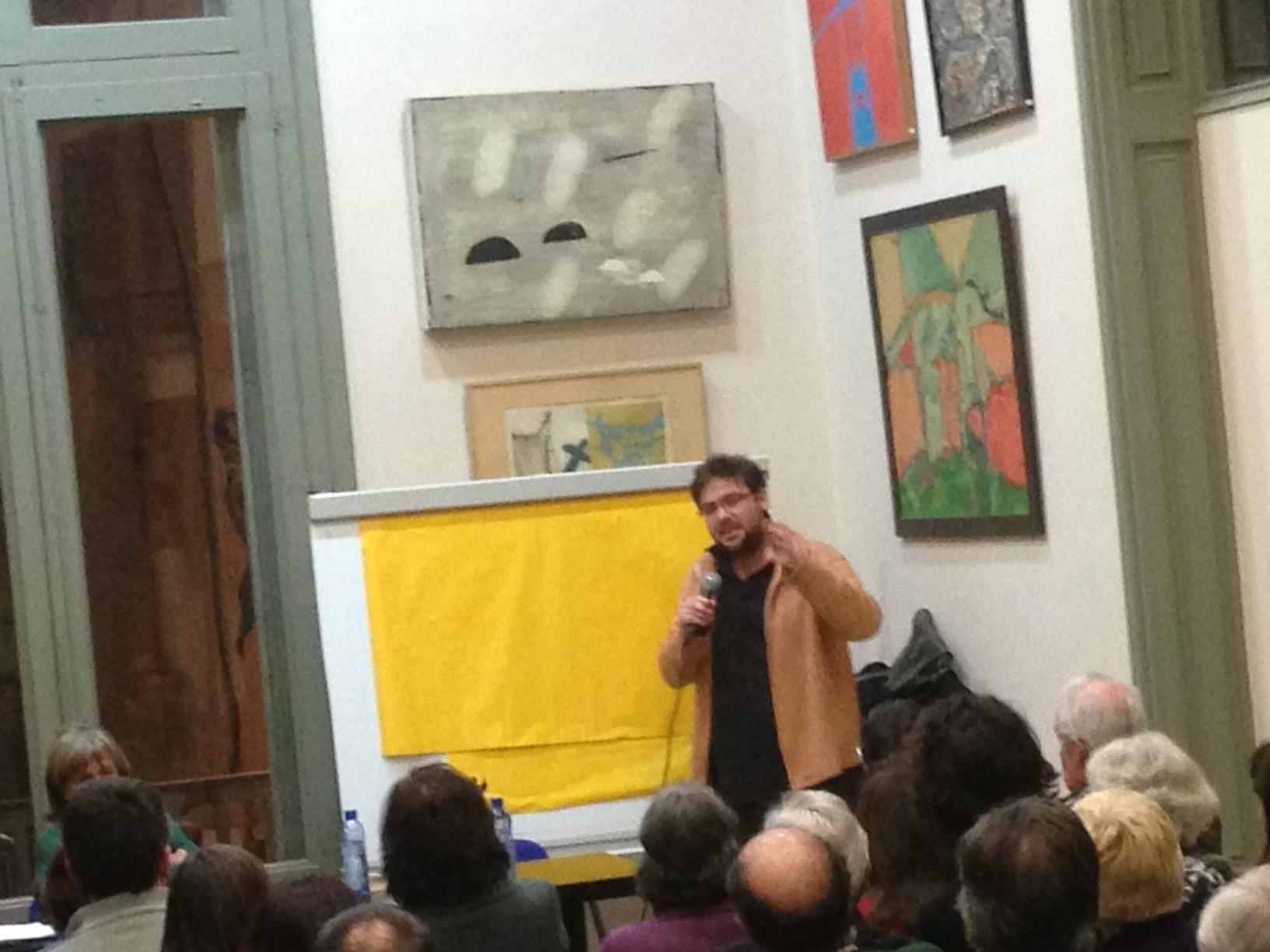The Upside of Austerity in Spain: Rooting Out Corruption
Albano Dante runs an investigative website that roots out local corruption, mainly in healthcare. He spends most of his time explaining his work to interested citizens, and encouraging them to do their own investigations. (Photo: Gerry Hadden)
Spain’s top corruption investigator recently called corruption a cancer destroying democracy. He was referring to an avalanche of cases coming to light, some involving the country’s top political leaders. It’s begged the question, Is corruption getting worse in Spain? Or are more cases just coming to light, as the harsh economic crisis continues?
It’s both things, according to Spanish journalists and researchers. There is more corruption now than, say, 20 years ago. The cases are as varied as they are numerous: From a famous singer accused of embezzling from an artists association, to the grand daddy of them all: a former treasurer of Spain’s ruling Popular Party accused of stashing 30 million dollars in public funds in a secret Swiss account.
Spaniards have been left reeling of late by the sheer number of corruption cases, most involving the political class.
About 800 politicians are currently being investigated for corruption, according toManuel Villoria, an expert on corruption at Rey Juan Carlos University in Madrid. Villoria’s also a researcher for Transparency International. He said every country has corruption, but the types differ. In Greece, for example, you have to pay cash bribes to see a doctor. In Spain, he said, it’s all about pilfering public coffers.
“The most important problem in Spain,” he said, “is the political system and the political parties.”
Villoria said they sometimes fund themselves through illegal means.
“They use urban planning, they use sometimes money from the European Union for professional education, to fund their parties.”
Villoria said corruption has risen in Spain, as have the amounts of money involved.
Veteran Spanish investigative reporter Eduardo Martin de Pozuelo said that in some ways this is good news — an indication that Spain’s 35 year old democracy is maturing.
“We’ve long thought it was a good aspect of our new democracy that all these cases come to light,” he said. “Because under the dictator General Francisco Franco corruption was the essence of the system.”
And you couldn’t speak out against it. Today of course you can. And people are finding new ways to do so, besides at traditional street protests.
At a recent town-hall style gathering in the city of Terrassa, people vented their anger over local corruption. An elderly gentleman took the mic and said simply that the country is rotten through. That got folks cheering.
One of the people leading this meeting was activist turned investigative reporter Albano Dante. He runs a website called Café Amb Llet, or Coffee with Milk, in Catalan. He’s been exposing alleged corruption in public healthcare — corruption that he said went undetected for years while Spain’s economy was growing. In essence, he said, austerity has produced an upside.
“If there’s a river with lots of water, and some of it gets diverted away, it’s no big deal,” he said. “But if river’s level suddenly drops, and people are thirsty, then we focus on the leaks.”
Dante said illegal siphoning of public funds has been going on for years. But since there was money, people could steal and maintain public services.
“Now that there’s no money for the services, we’re starting to ask questions,” he said.
Dante spends most of his time traveling from town to town, trying to teach people how to investigate corruption for themselves. And he said its working. Almost too well. His website is a tiny operation — he runs it with his partner, Marta Sibina, who also works as a nurse. But he said that lately people have started to contact them directly, filtering leads to them.
“We’ve got so many leads”, he said, “we can’t handle them all.”
In the meantime Spain’s federal government is trying to improve transparency with a new law increasing access to public documents. But that doesn’t seem to be enough to make the Swiss account scandal go away. The same ex-treasurer accused of stealing the 30 million? There are allegations now — even from within the Popular Party — that for years he handed out monthly envelopes to party leaders; envelopes stuffed with thousands of dollars in stolen cash.
Every day, reporters and producers at The World are hard at work bringing you human-centered news from across the globe. But we can’t do it without you. We need your support to ensure we can continue this work for another year.
Make a gift today, and you’ll help us unlock a matching gift of $67,000!
